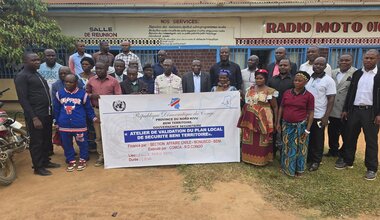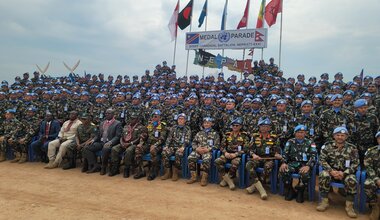13 June 2015 – International Albinism Awareness Day
Martin Kobler, Chief of MONUSCO calls for actions against all forms
of discrimination towards albinos
Kinshasa, 13 June 2015 – “Like any other human being, the persons affected by albinism deserve our love; they need to feel respected and dignified and to know their dignity is preserved and promoted in every circumstance», said Martin Kobler.
Civil society activists report that hundreds with albinism, the majority of whom children, have been killed, mutilated and came under attacked in at least 25 African countries because of beliefs surrounding them. The crimes against these people are still rarely investigated or prosecuted.
“The Social rejection inflicted on the albinos leads to their isolation, which often contributes to accentuating or aggravating the situation of precariousness or simply poverty in which they live. As a result, it is urgent to definitely put an end to intimations, bias, violence and social exclusion of which they are the victims, said the chief of MONUSCO.
Notes to editors:
The commemoration of the International Albinism Awareness Day stems from the resolution 69/170 of the United Nations General Assembly adopted on 18 December 2014.
Discrimination and violence against persons with albinism were highlighted on several occasions by the Human Rights Council and the African Commission of Human Rights.
This first International Albinism Awareness Day is the opportunity to celebrate the talents and achievements of the persons affected by albinism and to join in the fight against the challenges facing them. Due to widespread ignorance, some erroneous and extremely harmful beliefs continue to provide a breeding ground for the stigma brought to these people, even to the extent of undermining their physical integrity and their lives.
In the coming weeks, a UN independent expert will be appointed to give an international voice to the concerns of the persons affected by albinism and to contribute to the protection and promotion of their rights.
 UN
UN United Nations Peacekeeping
United Nations Peacekeeping




